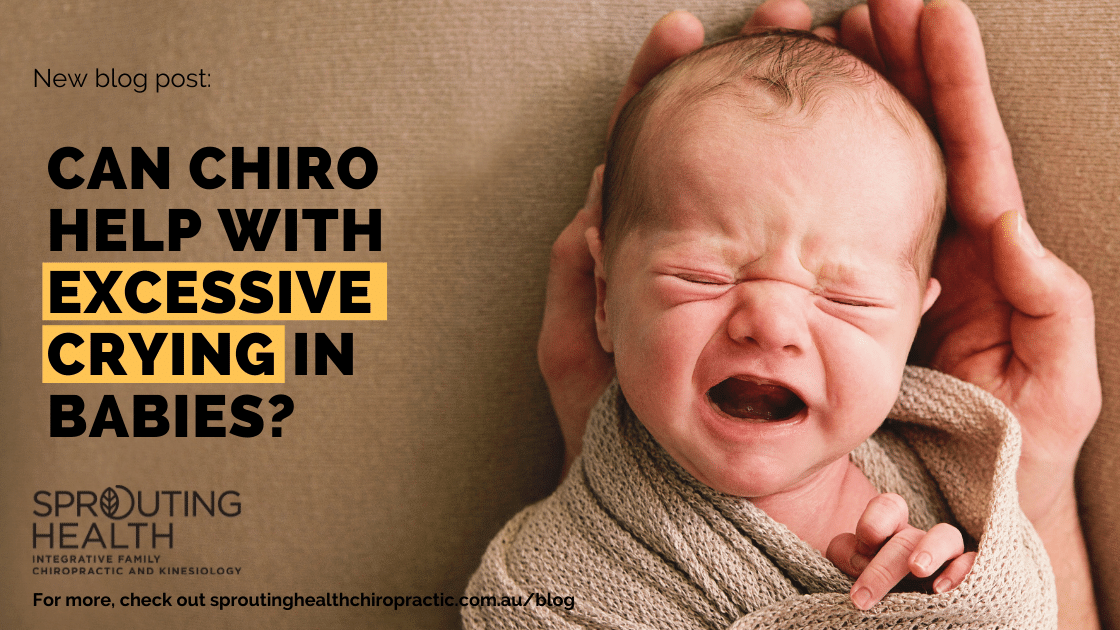|
Anyone who is a parent would understand the frustration of an excessively crying or fussy baby. Chiropractic has been found to be safe and effective care for infants (in comparison with similar treatments) (1), but can it help support crying babies? If you or a loved one are looking for extra support for a crying baby then this is an article that could make the world of difference to you.
“Cry and fuss problems are responsible for up to 20% of paediatric consultations” (2) Crying deemed as excessive by the caregiver/parents can be a stressor affecting mental health and the well-being of adults (3), this may lead to parental distress and depression (4). It can also cause poor parent-child relationships and problems with long term child development. (5,6). So not only is it important for the infant to help them become a calmer child, but it is also important for the parents too. In a recent research study 74 caregiver/parents were given a questionnaire retrospectively in regards to their infant that attended a chiropractic clinic, and had chiropractic treatment. It was observed that there was significant improvement with infant crying scores and sleep outcomes. The parents also saw clinically significant improvements with their own anxiety and depressive feelings (7). Though more studies are needed as it is only based on the perception of the parents, it is a study that points towards chiropractic as another management consideration for infants who cry excessively or are quite fussy, not only for the health of the child but also the wellbeing of the parents. If you want to find out if chiropractic may assist you with your infant, have a chat with one of our chiropractors to see how they can assist. “Reducing stressors are important for both the child and parents for a more harmonious family” References 1. Miller, J.E., Hanson, H.A., Hiew, M., Kwong, D., Mok, Z., Yun-Han, T., 2019. Maternal Report of Outcomes of Chiropractic Care for Infants. J Manipulative Physiol Ther, 42(3):167-176. 2. Halpern, R. and Coelho, R., 2016. Excessive crying in infants. J Pediatr (Rio J), 92 (3 Suppl 1), S40-45. 3. Long, J., Powell, C., Bamber, D., Garratt, R., Brown, J., Dyson, S. and James-Roberts, I. S., 2018. Development of materials to support parents whose babies cry excessively: findings and health service implications. Prim Health Care Res Dev, 19 (4), 320-332. 4. Kurth, E., Kennedy, H. P., Spichiger, E., Hösli, I. and Stutz, E. Z., 2011. Crying babies, tired mothers: what do we know? A systematic review. Midwifery, 27 (2), 187-194. 5. Stifter, C. A., Anzman-Frasca, S., Birch, L. L. and Voegtline, K., 2011. Parent use of food to soothe infant/toddler distress and child weight status. An exploratory study. Appetite, 57 (3), 693-699. 6. Smarius, L. J., Strieder, T. G., Loomans, E. M., Doreleijers, T. A., Vrijkotte, T. G., Gemke, R. J. and van Eijsden, M., 2017. Excessive infant crying doubles the risk of mood and behavioral problems at age 5: evidence for mediation by maternal characteristics. Eur Child Adolesc Psychiatry, 26 (3), 293-302. 7. Marinus, M.A., SA, M.T.C. and Crowther, E., Does chiropractic care have an effect on depression and anxiety scores in caregivers of excessive cry/fuss infants?. THE CHIROPRACTIC CLINICIAN, p.13.
0 Comments
Leave a Reply. |
AuthorBlogs by the team at Sprouting Health Archives
July 2024
Categories |


 RSS Feed
RSS Feed
